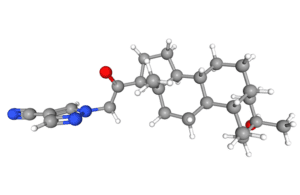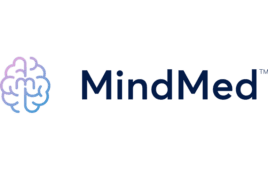
[Zuranolone image courtesy of PubChem]
If approved, zuranolone could significantly alter the antidepressant market. A neuroactive steroid, the drug would be prescribed as a 14-day oral short-term treatment for MDD and PPD. By contrast, many patients taking traditional antidepressants do so for at least six months and often for multiple years.
Zuranolone could diversify the treatment landscape for depression
In clinical trials, zuranolone demonstrated efficacy in as little as three days in patients with MDD and PPD. Conversely, patients beginning a course of antidepressants must wait multiple weeks to determine whether they are effective.
“Overall, I’m looking forward to using zuranolone in clinical practice if it’s approved, as I believe it would be another meaningful tool in my toolbox for treating depression in my patients,” said Dr. Greg Mattingly, associate clinical professor at Washington University in a Biogen webinar.
While the antidepressant is crowded, potentially constraining zuranolone’s uptake, the drug’s quick-acting effect and good safety profile make it likely to win FDA approval.
Could alter how depression is treated
Typical antidepressant therapy can be slow. Patients beginning to take an SSRI such as Lexapro (escitalopram) or Zoloft (sertraline) will typically take them for a few weeks to determine if their side effects are manageable. It can take between six and eight weeks to determine whether the antidepressant is improving mood and other symptoms. Many patients take antidepressants for multiple months or years. Those wishing to discontinue antidepressants typically must taper off the drug over weeks or months.
For the chronic treatment of MDD, monoamine-based antidepressants also remain popular. But monoamine oxidase inhibitors (MAOIs) can have significant side effects and require dietary restrictions. MAOIs must also be administered daily to achieve adequate exposure and maintain efficacy.
By contrast, the short-term treatment aspect of zuranolone would require a substantially different treatment approach. “In terms of fitting [zuranolone] into my practice, monitoring a short course of treatment would mean changing my expectations for what I expect to see with an antidepressant medication,” Mattingly said.
If zuranolone wins FDA approval, Mattingly envisions that physicians would use metrics such as the Patient Health Questionnaire-9 (PHQ-9) to monitor improvement and relapse. Physicians would also work with patients to see if they have any lingering symptoms.
Relapsing patients could potentially begin another course of treatment or take the drug in tandem with another antidepressant. “I envision regular check-ins with my patients if there are any signs of a relapse or recurrence and have them come to the office and talk about the next treatment steps,” Mattingly said.
The durability of a two-week course of zuranolone remains unclear based on two randomized clinical trials. In the Phase 3 CORAL study on MDD, the primary endpoint was a reduction in depressive symptoms at day 3 over a 14-day treatment period. The results were statistically significant on day 3. In the Phase 3 WATERFALL study, MDD patients taking zuranolone had a statistically significant improvement in depressive symptoms over placebo at day 15.
Biogen noted in a webinar that an integrated analysis of four clinical studies of MDD and PPD, a 14-day treatment course of zuranolone led to greater improvements over placebo on the Medical Outcomes Study Short Form (SF)-36 scale. Patient-reported benefits were observed on day 15 and sustained at day 42 in MDD and on day 45 in PPD, said Dr. Maha Radhakrishnan, Biogen’s chief medical officer, in a webinar.
Zuranolone wouldn’t be the first rapid-acting depressant. Earlier this year, FDA approved the quick-acting antidepressant Auvelity (dextromethorphan HBr-bupropion HCl) for treating MDD in adults.
Biogen and Sage are thinking ‘strategically’ about zuranolone’s access strategy
Given the goal of transforming the treatment landscape for MDD and PPD, Biogen and Sage are pursuing a “value-centric access strategy,” said Chris Benecchi, the chief business officer of Sage Therapeutics, in a webinar. The companies aim to minimize onerous restrictions that could delay the prescription immediately from getting filled.
Benecchi acknowledged that cost is an “important component” of the access strategy. “What I can say now is that we’re thinking strategically about pricing and that we believe our pricing strategy will take the needs of all stakeholders into consideration,” Benecchi said. “We believe our pricing strategy will take the needs of all stakeholders into consideration.”
For MDD, commercial payers and government payers commonly cover antidepressants, which are among the most widely prescribed drug types. “Despite the number of generics in the market, branded products are well covered by all categories of payers,” Benecchi said.
“We believe that zuranolone could potentially garner favorable coverage with payors and provide a highly desirable treatment option for people living with MDD and the clinicians treating them,” Benecchi concluded.
Filed Under: Psychiatric/psychotropic drugs





Tell Us What You Think!
You must be logged in to post a comment.